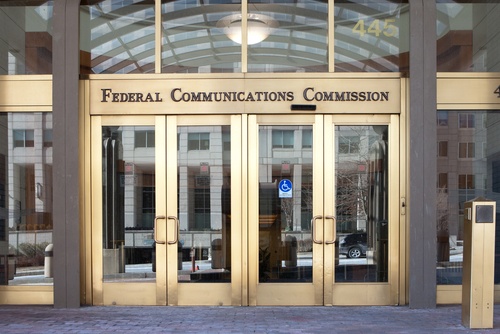Key Takeaways
- FCC Chair Brendan Carr doubles down on punishing Jimmy Kimmel.
- Local stations like Nexstar and Sinclair plan to drop Jimmy Kimmel Live!.
- ABC and Disney reversed course and will bring back the show.
- Lawmakers, stars, and free speech advocates loudly oppose the suspension.
- Ongoing TV station mergers may hinge on FCC approval and these disputes.
Jimmy Kimmel’s Show Under Fire
Late-night host Jimmy Kimmel sparked controversy with comments about a slain MAGA influencer. Soon after, the network suspended his show indefinitely. Then local TV stations stepped in. For the first time in years, they preempted national programming. This move upset FCC Chair Brendan Carr. He claims stations have a lawful right to choose local shows. Meanwhile, Disney and ABC reversed their decision. Yet Nexstar and Sinclair, two big station groups, vowed to keep boycotting the show. Protests broke out in Los Angeles. Stock prices at Disney dipped. The fight over Jimmy Kimmel shows a larger clash over speech and power in media.
FCC Targets Jimmy Kimmel Over His Comments
Brendan Carr has made clear he wants consequences for Jimmy Kimmel. He urged Disney to take action right before the suspension. Then he blamed Democrats for the backlash on social media. According to Carr, local stations are exercising their rights and serving viewers. He argues they should stay in charge of programming choices. Critics say the FCC has no right to police speech. Former FCC Chair Tom Wheeler called Carr’s stance improper. Wheeler pointed out that the FCC can’t patrol content in the name of public interest. Still, Carr insists local stations need support to serve their communities.
Local Stations Join Boycott
Nexstar Media and Sinclair Broadcasting teamed up to drop Jimmy Kimmel Live! They plan to replace it with local news at about 20 percent of ABC affiliates. Those stations control nearly a quarter of the ABC market. The move shows the power local stations wield. Station owners worry that national shows may push political views on their audiences. As a result, they are more willing to preempt network content. This push aligns with Carr’s call to empower local stations. Nonetheless, it leaves fans puzzled and advertisers uncertain about where to find the show.
Disney and ABC Reverse Suspension
After heavy protests and stock dips, Disney held private talks with Jimmy Kimmel. Following these short discussions, ABC announced the show would return. The network blamed no one but itself and praised thoughtful dialogue. Despite that, some ABC affiliates plan to keep the boycott. Disney’s quick reversal shows how public pressure can sway big media. Fans cheered the comeback online. Yet uncertainty remains about where and when the show will air on every station. In addition, the fight highlights how fragile relationships between networks and affiliates can be.
Reaction From Lawmakers and Stars
Lawmakers from both parties criticized the suspension. Free speech advocates warned against government overreach. Hollywood stars joined protests outside Kimmel’s studio in Los Angeles. Many viewed the move as an attack on creative expression. In Congress, members argued that forcing a network to suspend a show sets a dangerous precedent. They questioned the FCC’s role in content disputes. Meanwhile, viewers took to social media to express support for Jimmy Kimmel. They used hashtags calling for his return. Protests spread beyond Los Angeles, signaling widespread concern over censorship.
What This Means for TV Business
This conflict could reshape TV station relationships. Networks may rethink how much they rely on affiliates. Station groups might demand more control over content deals. Advertisers could grow cautious about placing ads during contentious programming. Moreover, the backlash against Disney and ABC shows how quickly public opinion can hit share prices. As local stations flex their muscles, national programmers must navigate new risks. They may need to build stronger local partnerships. Or they might consider direct streaming options to bypass affiliates. Either way, the TV business faces a changing landscape.
Free Speech, Mergers, and Future Impact
Nexstar is closing a $6.2 billion deal to buy Tegna. It needs FCC approval and support from the current administration. Some worry Carr is using merger approvals as leverage against station owners. If true, this could chill future deals and spark legal fights. At the same time, regulators must balance public interest with free speech. The outcome of this dispute could set a precedent for how much power the FCC holds over content. It may also affect how networks and stations negotiate rights and preemptions in the years ahead.
Frequently Asked Questions
What sparked the controversy around Jimmy Kimmel’s show?
His comments about a slain MAGA influencer led ABC to suspend the show, prompting backlash from stations and viewers.
Why are Nexstar and Sinclair boycotting Jimmy Kimmel Live!?
They disagree with national programming pushing political views and support local stations choosing their own content.
How did Disney respond to the suspension backlash?
After talks with Jimmy Kimmel and public pressure, Disney and ABC decided to bring the show back.
Could this dispute affect TV station mergers?
Yes, station groups seeking FCC approval for deals fear regulatory leverage might influence merger outcomes.
